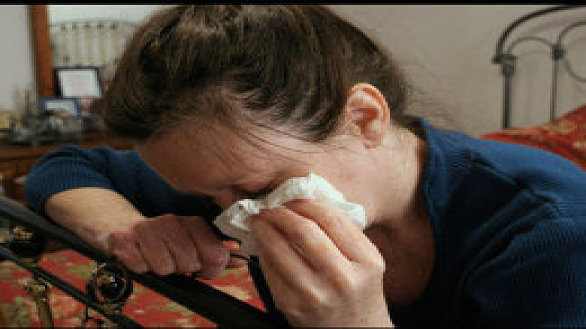Photo: October is Domestic Violence Awareness Month. United Methodist Women and United Methodist Men have joined forces to stand with women against domestic violence. A UMNS photo illustration by Ronny Perry.
STAMFORD, Conn. — Survivors of domestic violence should not have to choose between their faith and being safe.
Such a dilemma can occur, says the Rev. Aleese Moore-Orbih, if they are told by their churches to stay “in a situation where it is possible for them to lose their lives.”
Moore-Orbih, a United Church of Christ pastor, is director of training and consulting for FaithTrust Institute, which works to end sexual and domestic violence. During an October meeting of the Women’s Division of the General Board of Global Ministries, she counseled directors on how local congregations can assist abuse survivors.
According to the Domestic Violence Resource Center, one in every four women will experience domestic violence in her lifetime.
UM Women and UM Men have joined forces to stand against domestic violence. They are working as partners on programs, training and resources to address the problem.
“This continues to be a subject that we – within the UMC – don't want to talk about,” said Gil Hanke, top staff executive of the General Commission on UM Men. “We want to believe that it doesn't happen in our part of our community – that it doesn't happen to our church members or clergy families.
“The commission is working with the Women's Division to put some light on this subject so that all of the UMC will be a safe place for any man, woman or child whose life is jeopardized by domestic violence.”
UM Women is among the sponsors of “I Believe You: Faiths’ Response to Intimate Partner Violence,” which will air in January on ABC. The documentary explores the stories of women who have experienced abuse and how faith groups have created programs to address their needs.
Moore-Orbih told the Women’s Division that abusive relationships can provoke theological questions:
Why did God let this happen to me?
Why doesn’t God hear my prayers?
But faith also can be a source of comfort, knowing that God can be a helper and that God hates oppression and seeks accountability for those who harm others.
“Either her faith is going to help her or her faith is going to hinder her,” she said.
This article is an adaptation of a UMNS article by Linda Bloom


